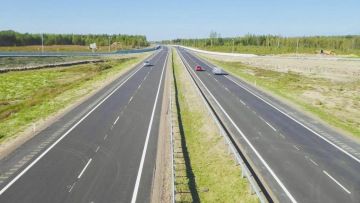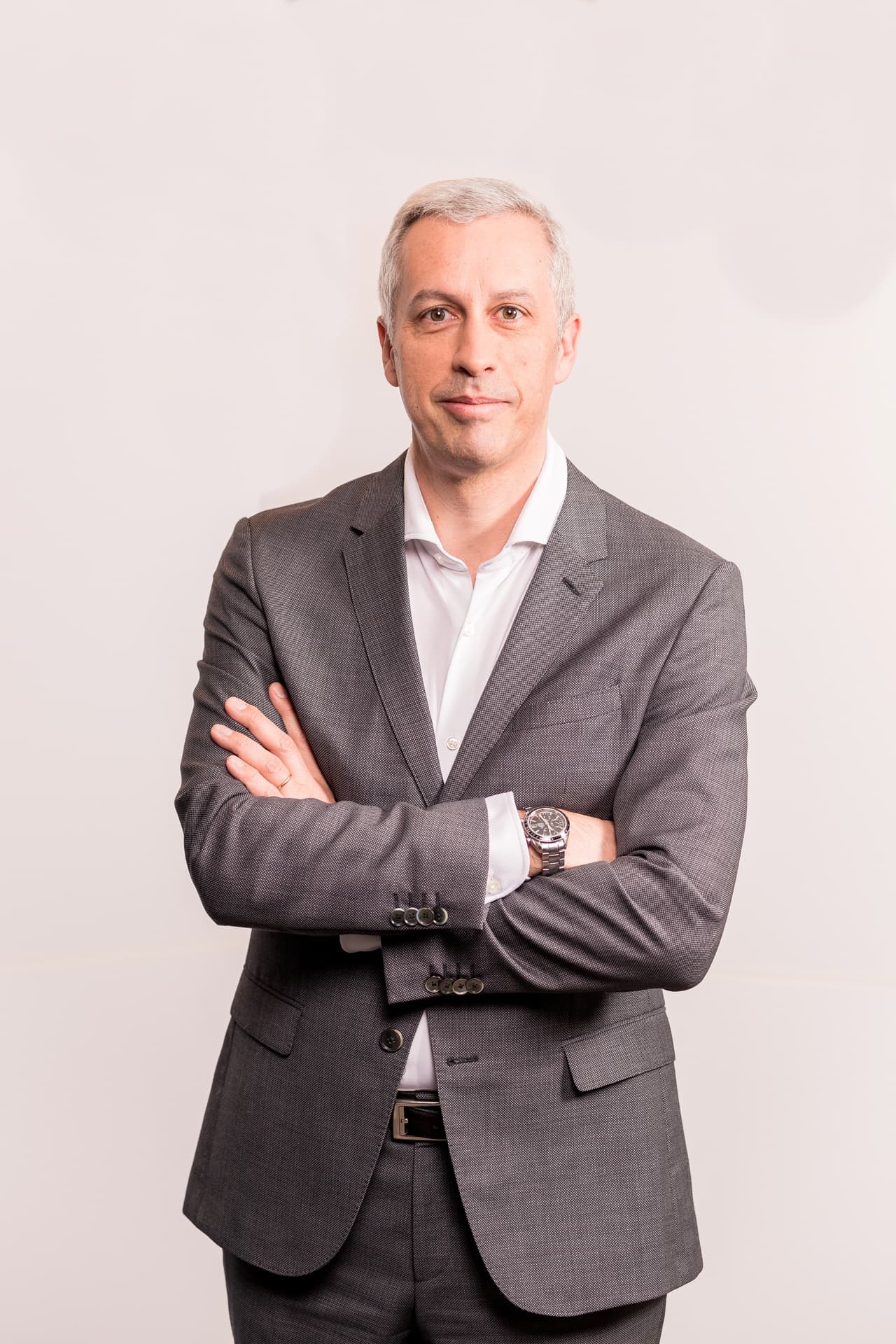ABOUT US

WHAT IS PPP
[ Public Private Parnership ]
The construction of the D4 section between Příbram and Písek (and its subsequent operation together with the already existing part of this motorway) is historically the first project in the Czech Republic to run according to the PPP model (Public Private Partnership), i.e. a partnership of public and private sector). It is a type of contractual relationship in which a private company provides for the construction and operation of infrastructure projects or services that are otherwise the domain of the public sector. Road infrastructure is by far the most common type of such partnership in the world, but PPP has a much wider use. In addition to other transport structures (railways, airports), this model is used, for example, in the construction and operation of administrative buildings, prisons, hospitals and medical facilities or in waste management (wastewater treatment plants, waste sorting and energy recovery), based on PPP but in the world, for example, public transport, energy or IT services also work successfully.
According to data from the European Commission, between 1990 and 2016, EU countries concluded 1,800 PPP contracts worth a total of 336 billion euros. Most of them originated in Great Britain, followed by France, Spain, Portugal and Germany. Among non-European countries, Australia, the USA, Canada and Japan are among the top ten countries that most frequently use PPP projects.
The PPP model can be advantageous in many respects. It is supported by financing (in case the public sector has difficulty paying for the infrastructure), overpricing (the total amount of the contract is clearly stated in the contract), full transfer of responsibility for quality and compliance with the speed of construction to a private partner, but also reputation. and private sector experience. At the same time, a private partner does not always have to be just a strong, capital-invested investor. PPP projects operate in many developing countries, where non-profit or humanitarian organizations play a private party role.
According to the intensity of the interconnection of the private and public sectors and according to the type of responsibility that each party bears, we distinguish several legal types of PPP. A rather a looser relationship is the operation and maintenance contract, where the private individual only plays the role of administrator. However, the vast majority of PPP models also work with financing from a private party, which is part of the contractual relationship. The greatest involvement of a private entity presupposes concessions - which is also the case with D4. The private contracting party takes care of the construction, financing, operation and maintenance, at the end of the concession period it then transfers the entire work back to public ownership.
The D4 motorway project is an important milestone in the PPP method. Unlike neighboring countries, no large project based on public-private partnerships has been completed in the Czech Republic. Although the state signed a contract with an Israeli group in 2002 for the construction of the D47 motorway in the Ostrava region without a tender, a year later the Ministry of Transport cancelled it on suspicion of corruption. In the past, it was considered that parts of the D3 and D7 motorways could be built using PPP, but in the end, the state always chose the conventional method of construction.
VIA SALIS MANAGEMENT (Concessionaire)
VINCI HIGHWAYS
VINCI Highways, subsidiary of VINCI Concessions, is a leading concessions company and operator of road mobility services. VINCI Highways designs, finances, builds and operates motorways, urban networks, bridges, tunnels and toll services across a network of almost 4,000 km in 16 countries. VINCI Highways capitalises on its expertise to guarantee the highest standards in terms of performance and safety, ensuring a positive experience for drivers.
3,564 km
operated
motorways
441 million
vehicles served
in 2020
4.8 million
digital / e-mobility
subscribers
+5,000
employees
worldwide
REFERENCES

R1 Highway, Slovakia
Three main sections of the 2×2 lane R1 expressway and the Banska Bystrica Northern Bypass, with a total length of 52km, improving connectivity and safety as well as providing local economic growth. In operation since 2013. The R1 Project consists of the design, construction, financing, operation and maintenance of three main sections of the 2×2 lane R1 expressway between Nitra and Tekovske Nemce, as well as the Banska Bystrica Northern Bypass, covering a total length of 51.6 km. The R1 project was developed to improve an important transport corridor for western Slovakia, to improve the road’s safety (eg. number of fatalities are down more than 90%) and to aid economic development in the region. Other key objectives of the project were to minimize the environmental impact of the infrastructure and to promote employment and better quality of life for local communities, by improving the connectivity with a modern highway. The motorway has been open to traffic since the completion of the final section in 2012.

E18 Highway, Finland
A 56km stretch of the E18 European motorway in Southern Finland from Koskenkylä to Kotka. In operation since 2015. In 2011 Meridiam, in a consortium with two major Finnish construction & road maintenance companies, YIT and Destia, as well as Ilmarinen, a leading Finnish pension fund, was awarded the E18 Motorway Koskenkylä–Kotka project by the Finnish Transport Agency (FTA), for the design, construction, renovation, financing, maintenance and operation of a 53-km stretch of the E18 motorway between Koskenkylä and Kotka, in southern Finland. E18 is part of the Trans-European road network and is a vital artery connecting Scandinavia to Russia via Helsinki. The reconstruction of the road to motorway standards, in order to improve connectivity and safety and to promote economic growth in the region, has formed a central plank of Finland’s transport strategy. Meridiam, the main shareholder of the Project Company, initially held 60% of the equity invested. Following the acquisition of 60% of the subordinated debt of Destia and of 100% of YIT’s junior funds in 2014 and the acquisition of YIT’s equity share in 2016, Meridiam now holds 70.05% of the equity and 76.08% of the subordinated debt

Via Niedersachsen
The A7 motorway runs through a strategic European corridor that connects Bavaria, Germany's economic centre, with the port of Hamburg, a major transport hub for goods from around the world. The aim is to offer drivers the highest standard in the world in terms of safety and quality along the entire length of the motorway, which is crucial for the German economy. It is a PPP project in which Meridiam and VINCI Concessions have joined forces. The project company Via Niedersachsen is the third successful collaboration between VINCI and Meridiam in Germany on road projects. VINCI Highways, part of the VINCI Concessions, has demonstrated on this highway the ability to continually innovate its processes to meet the need for a preventive approach to maintenance. For the first time in Germany, BIM (Building Information Modelling) technology was used on the A7 motorway already in the project phase, which makes it possible to anticipate interventions in the entire 60-kilometre section of the road.

Lima Expressway
The LIMA EXPRESA (formerly LAMSAC) concession has a two-lane toll road in the Peruvian metropolis of Lima. When VINCI Highways acquired the company in 2016, it became a concessionaire of the expressway around Lima and brought a number of significant changes. The agreement approved until 2049 includes the operation of two sections: 16 km of motorway and another section of nine km. VINCI Highways completed work on the section in 2018. The new section of the expressway includes 13 viaducts and a nearly two-kilometre tunnel under the Rimac River, which passes through the dense urban development of Lima.

Via Solutions Southwest
The consortium, which included VINCI Concessions (50% stake) and Meridiam (37.5%), won a concession contract for a 60-kilometre section of the German A5 Malsch-Offenburg motorway in 2009 for a period of 30 years. The project company Via Solutions Südwest has developed and is currently managing this PPP project in Baden-Württemberg. The contract includes the design, renovation and extension of the 41.5 km long section of the motorway, as well as the operation, maintenance and major repairs of the entire section of the motorway, which spans 57 bridges.

A2 Phase II, Poland
106 km highway connecting to the German Border. In operation since 2011. Following Meridiam Infrastructure’s investment in A2 Phase I “Autostrada Wielkopolska S.A.” (AWSA) between Konin and Nowy Tomyśl, Meridiam participated in the second segment of the motorway between Nowy Tomyśl and Świecko that was launched through an availability-based contract. This second phase covers the section of road connecting the A2 to the German border. The Project involves the construction of a new motorway from Nowy Tomyśl to Rzepin, the upgrade of a section of road to motorway standards and the installation of a closed toll system. The concession of this Phase II of the A2 motorway is held by a separate legal entity named Autostrada Wielkopolska II S.A (AWSA II). The key objectives of this project were to provide a modern motorway link between Poland’s capital Warsaw and the German border supporting national and local economic growth. The A2 is also designated as the E30 as a part of the Trans-European Network, linking Warsaw and Berlin. It is also a vital road link for towns and communities along the route.

Via Solutions Thuringia
VINCI Concessions won a concession contract for the A4 motorway from the border with the German state of Hessen to the eastern bypass of the Gotha cities in 2007 for a period of thirty years. The project is led by a subsidiary Via Solutions Thüringen, in which VINCI Concessions Deutschland has a 50% stake. Meridiam acquired a half stake in this project company in 2015. The contract covers the design, construction, renovation (extension), financing, operation and maintenance of a 45 km long section of motorway in the German state of Thuringia.

Bypass of Regina, Canada
The province of Saskatchewan in Canada is larger than France. The regional economy is based primarily on agriculture, forestry and oil and gas extraction. The crucial decision was to improve the flow of road traffic between these windy industrial plains and the rest of the world. As well as the construction of a bypass around Regina, the capital of the province. VINCI Highways obtained the 30-year concession agreement through its own local branches in Canada. The Regina Bypass has become the largest public-private partnership in Saskatchewan. This is the largest infrastructure project ever created in the province. It employed several thousand people. VINCI Highways works closely with local stakeholders to ensure the construction, financing, operation and maintenance of the 61 km motorway.
* A selection of completed projects by Meridiam a VINCI










